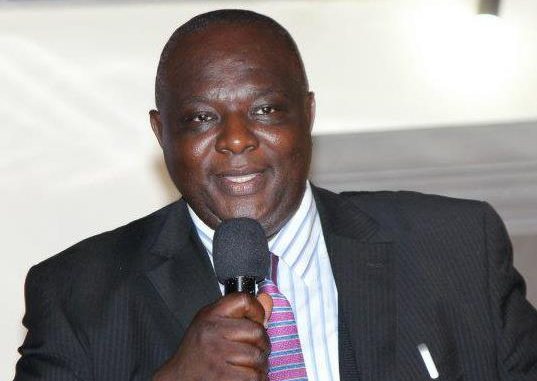
By Titus Boye-Thompson, Strategic Media & Development Communications Unit :
Freedom of the Press is a singular characteristic that sets out a good society apart from others that are more repressive and dictatorial. In Sierra Leone, Press freedom has been guaranteed not only by humane laws and a desire to maintain a fledgling democracy that had raised public awareness but it is also chastened by a draconian criminal libel law tending to exercise the carrot and stick approach to compliance. It is a paradox that lays claim to freedom of the Press and such a restrictive edict that inordinately stifles the very freedom that is claimed.
There are nonetheless some very potent argument as to why the criminal libel law is a necessary evil, if only but to protect the reputation and integrity that innocent maligned victim may have taken so hard to build. There is therefore a relative calm in the exercise of punishment or repression of the Press because the draconian libel law acts as the most potent deterrent to the abuse of the freedoms that the Press takes for granted. Having said this, there is a necessity to draw clear line between freedom to address public personalities, raise concern on morality and in some cases make known their proclivities in the public interest of course and by all accounts after a robust examination of the evidence, clear research findings and after giving the alleged culprit a right to comment or reply. Such a process is evocative of investigative and responsible journalism, the type that does not take liberties with the universal freedom of expression and speech that the Press so jealously guards.
On the other hand, the Press would like to be creative in how they address their topics or subject matter. There is room for creativity to the extent that poetic license accords for a stretching of the story as long as it is in the realms of making the story believable or otherwise in an attempt to extend a conjecture to align it to probable cause or a likelihood of respectability and credibility. To say that the Press should be disallowed from being creative would be akin to constraining an artist as to the way he should treat his subject matter. This would be tantamount to censorship thus depriving the artist of any semblance of craftsmanship. A creative Press is therefore necessary to vitalize the process of exercising freedom of expression although the line between creativity and offensive articulation that may tend to obfuscate public social sensibilities should always be in focus.
People in high office, especially politicians have always been a legitimate target for Press intrusion, Public life erodes some of the freedoms enjoyed by others and to a large extent, opens up the door to public humiliation, rightly or otherwise. The expression of freedom of speech or the desire for a creative Press is no excuse for the degradation of individual identities or the respect afforded to the sanctity of any right to a private life. However superficial their actions, a Press moved by vitriol to attack the personality of a person of high office will be provoking a retaliation that may tend to be counterproductive to the goal of securing respect for individual rights. When the Press offends, it becomes news when a reaction is taken to that offence and particularly, accusations of repression or the denial of freedoms of expression are brandished in defense. Thus the arguments over the incarceration of journalists raise the very same question of whether the action to be stern in the face of provocation is a measured and appropriate response.
Respect for high office is always a key function of the nobility of public service and in a fledgling democracy, signals the true mark of maturity of the fourth estate. When members of the Press ridicule the offices of state, it degrades the importance of that office and creates a semblance of lethargy in the execution of order within society. Thus to caricature the Head of State in a manner that is outright degrading would be the epitome of crass behavior and not in any way to be allowed to pass off as creative or of exercising freedom of expression or speech. The demeaning description of President Koroma was uncalled for and unnecessary. What was also unfortunate was the manner in which the matter has so far been handling although it would be unfair to summarily castigate both SLAJ and the IMC on the way they have attempted to handle the issue thus far. That SLAJ was quick to take umbrage says more about its immaturity of perception rather than on any deliberate misunderstanding of the key issues at stake. However, SLAJ should be forgiven for their stance. The default position of any organization such as SLAJ would be to protect its kith and kin in the face of what is perceived to be an external threat. Solidarity is a term often ascribed to those with the revolutionary fervor that is so much exercised by those who may be best described as anti state. The IMC was slow to act because this story has been in circulation for some time before it became popularized and given wider currency. The IMC should have a proactive monitoring system if it wishes to act as a regulatory body and not be passive, waiting for a complaint to be registered before acting to safeguard the integrity of state officials and in this case the Presidency. Secondly, in the absence of a robust opposition, journalism is the natural conscience of society and its practitioners take on the cloak of being as antagonistic as they can be towards authority. Jonathan Leigh could be-very well be perceived by some as being mischievous with the English language at the very extreme and that his comments were provocative but yet not meant with vitriol. This would always be a wild assertion but it is inconceivable how an attempt to circumvent established social norms of discipline and respect for authority by being so vindictive in language and demeanor to the President and his family. All in all, the Press has a duty to be responsible and mature.
The full consequence of the prompt action taken by the police would be discerned by the effect that this case would have in determining how much latitude the Press is given. President Ernest Bai Koroma has always prided himself on his wide acceptance for the Press. His has been the administration that has offered opportunities to the Press in various high offices including appointments in the diplomatic services and also close to him at State House. This administration has opened itself up to Press scrutiny to demonstrate its probity and accountability. Many a time, the Press has been the instigator for many a public inquiries supporting the drive to control corruption in public office. The Press has been allowed a vitality to determine the thrust of public debate and engagement. The Press therefore has no reason to encourage such vitriolic attacks on the President. On his part, President Koroma would not hold this as a grudge nor be wont to extract a punishment from his detractors. He may well excuse them in the coming weeks and determine that the punishment they have endured so far be regarded as time served. He would be magnanimous in treating this matter, extending an olive branch to SLAJ but in return, would expect reciprocity by way of more responsible journalism, less abrasive language and a general attitude change with respect to reporting of issues and events.
It will be significant if this imbroglio produces a positive outcome. As Journalists begin to recognize the constraining effects of the criminal libel laws, they may even be tempted to support its retention on our statute books. On the other hand, the legacy of President Koroma should be protected by a more robust preponderance of reporting that applaud his efforts at nation building, exacerbate his diplomacy and extenuates his empathy for those less able in our society at self determination and for the generality of his democratic credentials, good human rights record and absence of repressive tendencies. In short, President Koroma need to articulate his development gains more openly, his aides need to externalize his vision while his Ministers need to be more open and frank about the challenges that this country face. Overall, there is a need for some frankness with the Press, an open dialogue and regular briefings on the functions of key institutions of State may well serve to give credence to the good work and the positive achievements of this administration. The success of this Government would have to be judged by its protection of the President and on how best his legacy is preserved as a positive one, reflective of a stern but fair Presidency and for the opportunities given to diverse individuals and groups to meet their full potential in society.

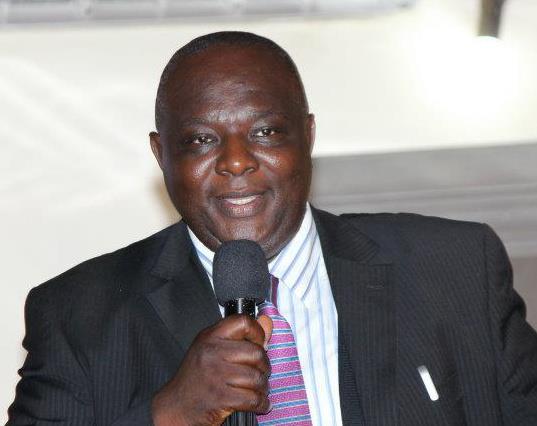
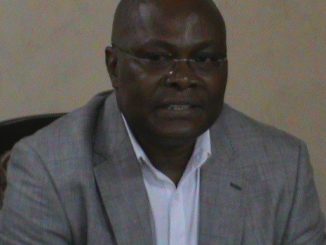
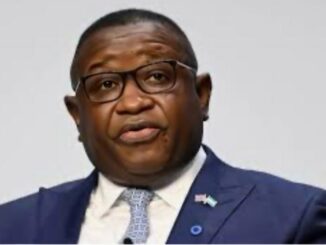
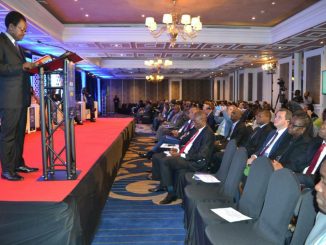
Leave a Reply